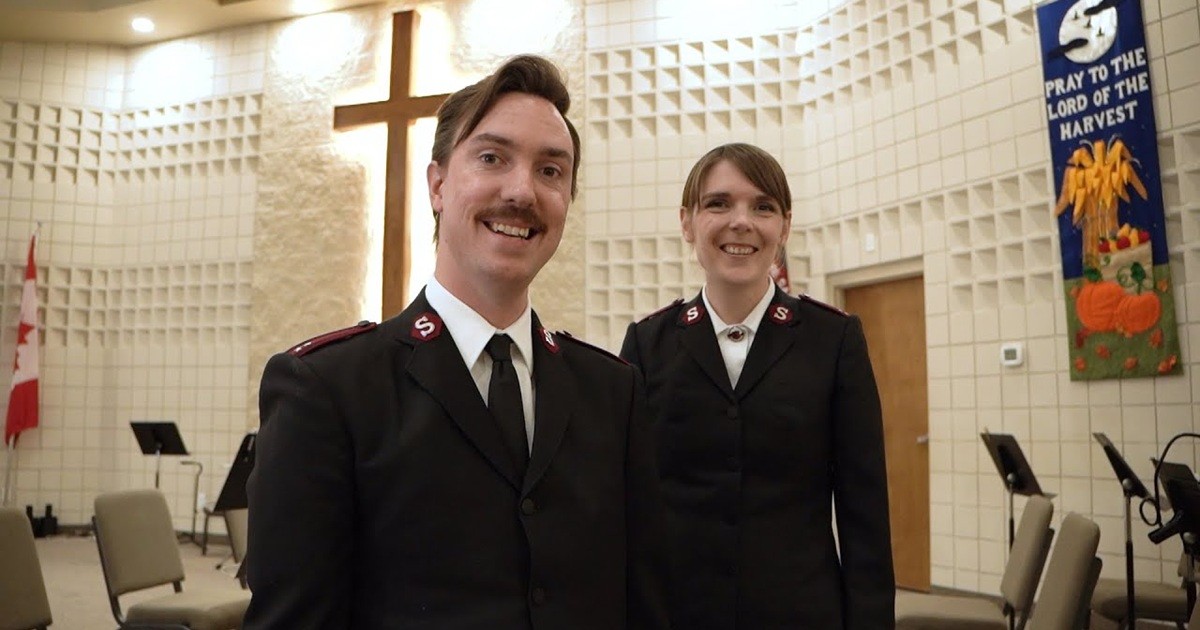 Since 2000, I have had numerous complications with Crohn's disease. The greatest took place in the last two months of 2009, culminating in two small bowel resection surgeries in which two feet of my small intestine were removed. With the disease choking sections of the intestine, my weight dropped to 125 pounds and I was slowly starving. Fortunately, the operations saved my life.
Since 2000, I have had numerous complications with Crohn's disease. The greatest took place in the last two months of 2009, culminating in two small bowel resection surgeries in which two feet of my small intestine were removed. With the disease choking sections of the intestine, my weight dropped to 125 pounds and I was slowly starving. Fortunately, the operations saved my life.
As a Salvation Army community care ministries member in Kamloops, B.C., I had often visited our community hospital to sing or play Christmas carols with our small brass band. Little did I realize then how much this ministry had meant to the patients who heard the music and had been handed a small bag of candy. Or how appreciative they were that someone took a moment to chat with them in their loneliness. I remember a young, weeping mother on the maternity floor, clinging to her intravenous pole as she listened to us sing a couple of carols.
Now it was my turn. Three days after surgery, I saw myself in the mirror. Having lost so much weight, it was painful to see a skeleton with skin draped over its bones. That was one of the lowest moments on my road to recovery. Thankfully, two wonderful women from my corps family visited me—Caroline Johnston and Major Sharleen McTaggart, my corps officer. How glad I was to see them. Whatever their thoughts may have been in seeing me in that condition, they hid their feelings. With them came a sense of the Holy Spirit's presence. Major McTaggart left me a daily devotional book of comfort and strength by Billy Graham.
Having been “on the other side,” I now understand the importance of hospital visitation. No matter how skilled the medical staff are, you remain fearful. We are body, mind and spirit. When the body is hurting, the rest of us suffers as well. When our spiritual life has been drained through surgery or disease, no medicine can renew our spirit. Only Jesus, the Living Water and the Bread of Life, can heal our weary soul. The visit of my fellow Salvationists became a turning point for me. Through God's help, I have made a remarkable recovery. With his continued assistance and the appropriate medical support, perhaps I will regain some of the quality of life that Crohn's disease has stolen.
Over the years, I have participated in a nursing home ministry that includes a monthly Sunday service. While in the hospital, I renewed my covenant with God about this ministry. If he wants me to do more, he will equip me. Never again will I take lightly the time with “my” people, playing the guitar as we sing familiar songs and then sharing an encouraging message from God's Word. Community care ministries is not only for the residents, but also for the staff and family visitors. Family members of residents have often spoken to me afterwards, saying, “Thank you so much for doing this for Mom or Dad.”
May Salvationists and other Christians gladly respond to God's call to be a blessing to others through this vital ministry. We are a conduit of his love and peace in hospitals, seniors' residences and nursing homes.
Community Care Ministries
Community care ministries, formerly called the league of mercy, originated in Canada in 1892 and is comprised of Salvationists of all ages whose mission is to engage in caring ministry.
The main objective of community care ministries is to respond to the spiritual and social needs of the community with the gospel and practical assistance. It usually involves visiting hospitals, prisons, seniors' residences and nursing homes, but can also be used to assist needy people in their own homes.
This volunteer ministry is adapted to the local situation, the size of its membership and the skills of its members. It endeavours to follow Christ's injunction, “… Whatever you did for one of the least of these brothers and sisters of mine, you did for me” (Matthew 25:40).
In the Canada and Bermuda Territory in 2009, community care ministries made nearly 150,000 visits.









Leave a Comment